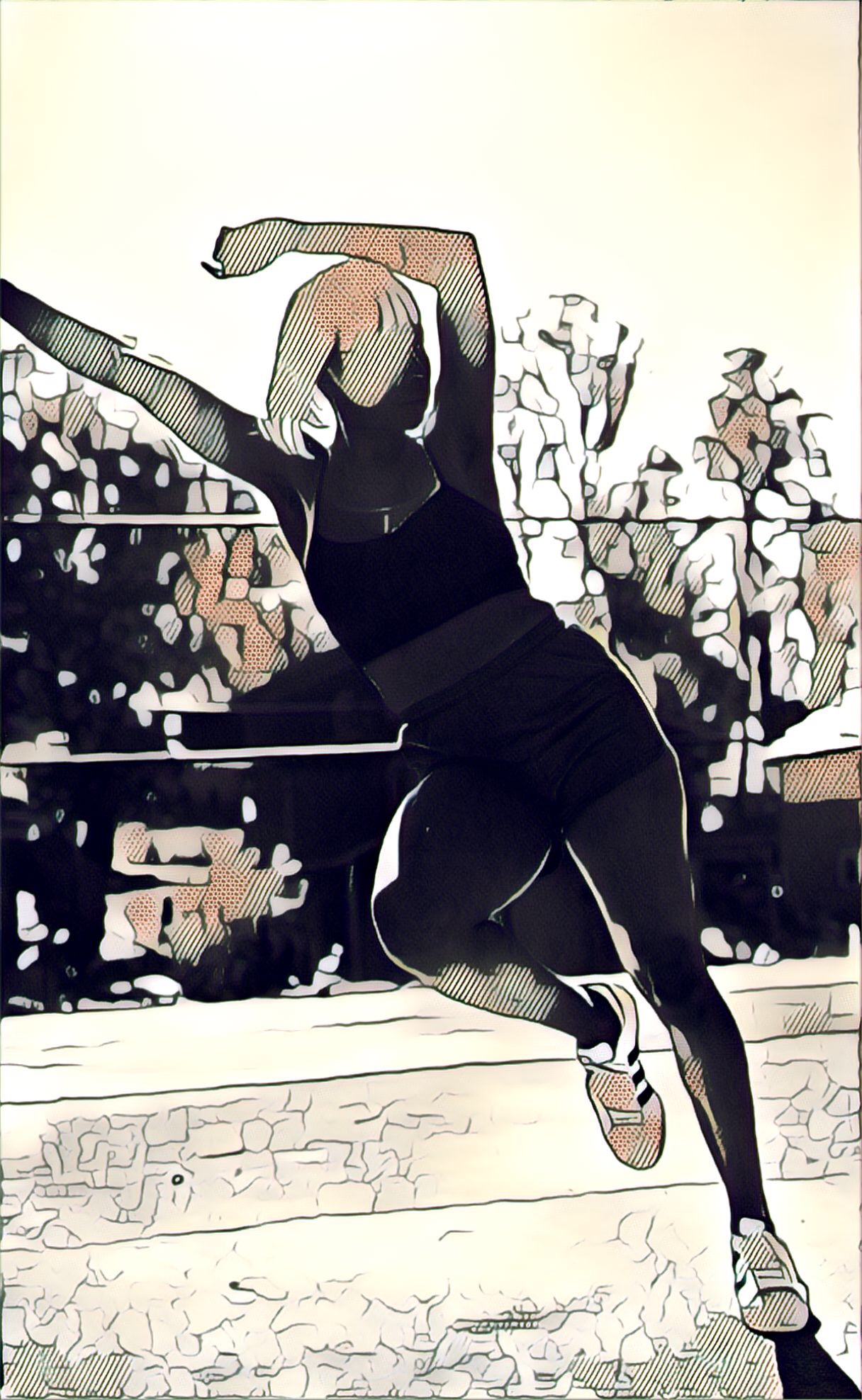This week on The Leak we’re back in the sports arena with Dr. Natalie Brown to see how periods and elite sport can co-exist and help athletes to perform at their best, wherever they are in their cycles.
Working in high performance sport, I was asked if I could research ‘The Female Athlete’, an area which was felt to be lacking in knowledge, but what a broad area…where to start?
Two years later we are still very much lacking research in elite female athletes in general, and even more so in relation to the menstrual cycle. However, there has been a shift where more research is being completed and I am thankful I have the opportunity to be involved and contribute to this. I am fortunate to combine my own personal interest with work and helping individuals perform at their best on any day of their menstrual cycle.
Following insight from interviews I completed with elite athletes I embarked on a journey aiming to help girls, coaches and parents increase their knowledge and awareness about the menstrual cycle and in the process hoped to change perceptions of the menstrual cycle – a biological process which we should be able to talk about.
Coach and parent education has been an evolving process approached from a bio-psych-social perspective offering insight into both biology and lived experiences of the menstrual cycle. Six sessions are available covering an introduction to the menstrual cycle, symptoms, impact on training and performance, management strategies for symptoms of the menstrual cycle, menstrual health and openness of conversation. The last session “openness of conversation” focusses on opening up conversations, increasing confidence and comfort talking about the menstrual cycle and periods with women and girls of all ages. Within these sessions, it offers a space to openly ask questions, share experiences, tackle uncertainties and learn that the menstrual cycle is a topic to be talked about openly and that there’s no need to feel uncomfortable talking about it.
We consider so many physiological processes within sport, yet the menstrual cycle driven by hormone response is hidden away due to perceptions established in society and reinforced by the media. In some instances, my sessions are the first time coaches and parents have received any information about the menstrual cycle – we can only continue on this journey to ensure perceptions are changed, increase open conversations, knowledge and awareness of the impact of the menstrual cycle on sport performance and participation.
When working with female athletes, although an aspect of education has related to understanding the menstrual cycle (eg. what is happening biologically and why?) the predominant focus is on managing their menstrual cycle and what they can do to reduce symptoms, perform at their best always and talk about the menstrual cycle rather than feeling that it is something to be hidden and remain a secret. One of the main approaches has been through monitoring their menstrual cycle including regularity and symptoms to better understand their own menstrual experience.
In many instances athletes who I’ve worked with had not related symptoms or variation they experienced in training to their menstrual cycle and instead battled with the frustration of poor training performance. By helping them understand their own cycle it allowed opportunity to help implement management strategies or self-care. Education on the importance of recovery especially in the luteal phase, nutrition considerations, exercise options and awareness of being kind to yourself, for example, to alleviate or reduce symptoms helps individuals manage their menstrual cycle and empowered them to take control rather than perceive periods as a burden or something to ‘just deal with’ or ‘suck it up and get on with it’. Although periods are never an excuse not to play sport, the experience can certainly be better! I have worked towards identifying the positives of periods and working with this, highlighting when within the cycle athletes may feel strong, have excellent coordination or improved endurance.
An important aspect of education for everyone, from my perspective, is highlighting missed periods are not normal in sport, it shouldn’t be perceived as convenient not having a period and certainly not positive. Sharing information of the importance of periods for health and never perceiving a missed period as a sign of training hard enough is a perception I am passionate to change and use self-awareness, management strategies and self-care to show that periods don’t have to impact performance, but are hugely important to have and a vital health check. We are fortunate to have an extra vital sign for health – let’s listen to it!
We also recently published Gemma Green’s reflections with Anna Cole in her work with athletes and sport if you missed it and would like to read more on this topic. It’s great to see these types of conversations continuing and gaining more traction as women’s sport has gained more mainstream popularity. Bring it on!

Dr. Natalie Brown
Dr. Natalie Brown is a research scientist working with the Welsh Institute of Performance Science, specialising in the menstrual cycle and the impact on sport and physical activity. You can find Dr. Natalie on Instagram @optimal.period


